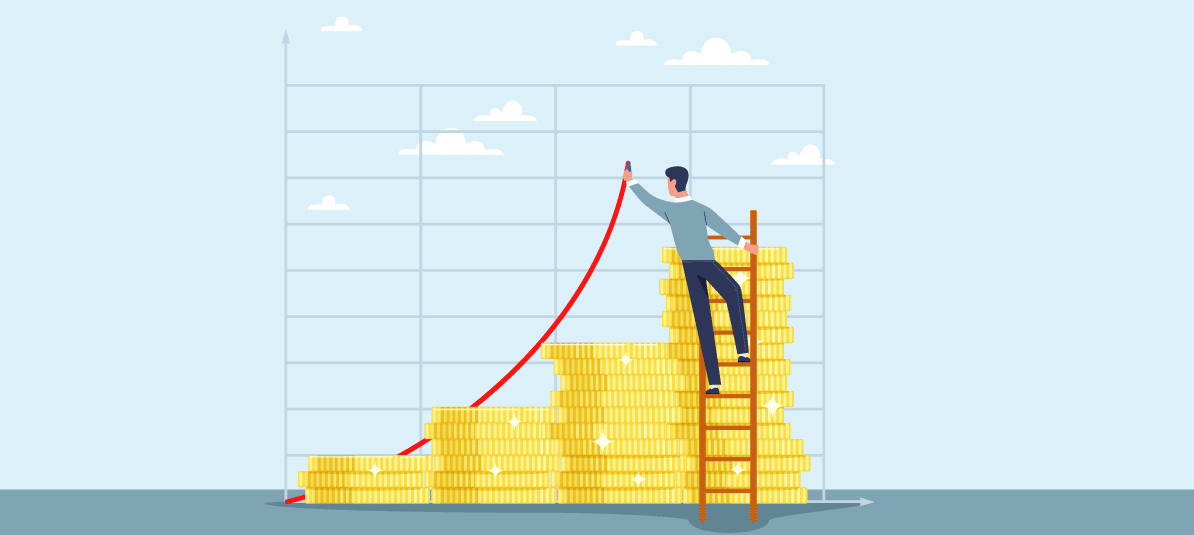But let’s start at the beginning. Why do we need to save? Or let’s go even further. Why do we need to manage our household finances optimally?
These and other issues are just a reflection of how important financial education is in our lives. And it is not about being an expert in finance, but about being aware of our personal situation, and seeing the economy as a tool for achieving the goals we set ourselves and not as a burden we carry on our backs that we cannot shake free from.
Mortgages, interest, fees, exchange rates, inflation… the list of financial concepts that we see every day is very long, so, whether we like it or not, throughout our lives we will have to make financial decisions, and, as in everything, the more prepared we are, the better we will do it.
That is why Fundación MAPFRE is going to try to guide you through 5 steps that will make managing your personal finances easier and give you fewer headaches.
1. Know yourself
There is no room for excuses. If you want to take control of your finances, you must first be clear about who you are and what you are like from a financial standpoint.
This means being clear about your assets, your income and expenses, and consequently your ability to save. In short, you must draw up your family budget and use it.
2. Envision your dreams
In other words, set goals and be clear about how you should manage your money to achieve them. The famous phrase “money does not bring happiness” is probably true, because money should not be a goal in itself, it is a means to help us achieve the goals we have set for ourselves.
We want to give you some tips on how savings and investments can help you achieve your goals, but the first thing you need to do is to set up an emergency fund. This just means having a certain amount of money available to deal with unforeseen events. And I am referring to real unforeseen events, not to expenses that we are certain are coming but which we have not planned for properly.
This emergency fund will allow us to sleep more soundly, and from there we can move forward with our financial strategy.
3. Develop your strategy. Saving is the foundation
We already know what we can save each month and what we want to save for, but where do we start? Our budget helps us to understand where we spend our money, so we can cut back and start saving to achieve the dreams we all have. And right now, we need to make saving one of our habits.
The key to getting off to a good start is to stop seeing saving as something negative and turn it into our “means of transport” for a smooth journey, financially speaking.
There are many tricks and tools for doing this, but perhaps this infographic will help you to see it more clearly:
4. Be careful! Saving is not enough
Inflation! A concept that, unfortunately, has become part of our everyday vocabulary and has become the great “enemy” of savings.
To simplify it somewhat, inflation is the generalised increase in prices and what it does is “eat away at your savings”. If the price of products increases, but your money does not, you lose purchasing power.
And what can we do to avoid this? The secret is investment. At first glance, this is a scary concept and we often feel that we are not ready for it, but the truth is that, with the right expert advice and by learning a few simple concepts, we can all become investors once we have set up our emergency fund and built our savings strategy.
Does this mean you have to choose between saving and investing? The answer is no. The ideal approach is to include investment in your savings plan. In other words, when you know your savings capacity and have acquired the habit we mentioned earlier, you can (I would say “should”) allocate part of it to increasing your savings and another part to investing.
But to take this step we must consider several fundamental factors:
- Invest only what you are willing to lose: all investments carry a risk, and this risk is directly proportional to the expected return. This means that if we want to obtain a higher return, we must also be willing to take on more risk and even lose more money if the investment does not turn out the way we expect it to.
- Invest what you don’t need in the short term, because not all investment products have the same liquidity (the ability to get your investment back immediately), and you may lose out on profit if you have to withdraw your investment suddenly and unexpectedly.
- Time is of the essence: long-term investments generally offer the best returns.
5. Enjoy the future with peace of mind
You’ve sorted it all out, so all you have to do is enjoy life! Remember that all this effort you are making is to achieve the financial well-being that will help you achieve your life goals more easily.
These five steps are only intended to be a rough guide to what our relationship with finances should be, but they are part of a broader strategy that Fundación MAPFRE is rolling out through its Seguros y Pensiones para Todos program. The main objective of this initiative is to provide society with a basic overview of insurance, social security, savings and investments.
This program also includes participation as a collaborating entity in the Financial Education Plan promoted in Spain by the National Securities Market Commission, the Bank of Spain and the Ministry of Economic Affairs and the Digital Transformation. And Financial Education Day is celebrated on the first Monday of October each year.
Each October Fundación MAPFRE organizes actions around the year’s chosen slogan, which in 2022 is “Education for safer finances”. That is why, on October 3, a social media campaign was launched with tips on how to avoid becoming a victim of financial fraud, a threat that is becoming increasingly widespread through fraudulent emails and SMSs, or financial scams, among many others.
But Fundación MAPFRE’s actions in the field of financial education do not stop there. In addition to Financial Education Day in Spain, we also take part in the National Financial Education Weeks in Brazil and Mexico, and in Global Money Week, which we have joined in 2022, and in which we will continue to participate in the coming years.
And we will keep creating new content, and giving training sessions in classrooms, through which we reach more than 40,000 university, vocational training, high school and 4th year of secondary school students every academic year.
Adrián Gutiérrez de la Dehesa
Expert in Financial Education at Fundación MAPFRE









